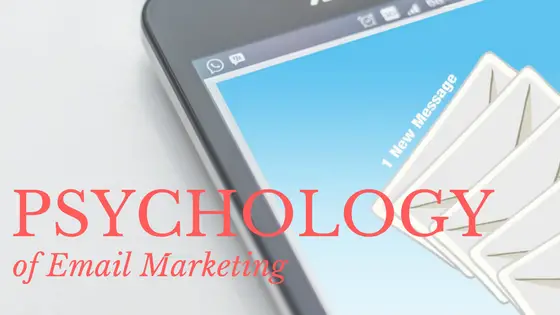All marketing is psychological in some form. After all, that is what makes readers interested in what a business has to offer.
Shweiki Media Printing Company’s head of printing services in San Antonio, Texas sits down with Nancy Harhut to explore the psychology behind one of the most popular forms of marketing: email.
Nancy is all about creativity and soliciting a response from her readers. She has shared her passion with people from the United States Department of Defense and other government outlets. She was also recognized as the NEDMA Direct Marketer of the Year, Ad Club Top 100 Creative Influencer, and was an Andi Emerson Award recipient.
She currently works with the Wilde Agency, where she and her team have won dozens of awards for marketing effectiveness.
The Power of Email Marketing
Email marketing has become the workhouse for a marketer, says Nancy. She looks at email marketing as the primary channel for marketers to rely on. She stated that in a recent Mailigen survey, it was found that 89 percent of marketers use email as their primary lead generation tool.
For most companies, email marketing offers the highest return on the investment.
However, to get the most action from an email marketing campaign, Nancy points out that people need to look at the psychology behind it and understand their target reader to drive conversions.
Also, there is plenty of competition in email marketing; therefore, a person does not have much time to spend with their email message. A person gets three or four seconds before deciding if they will open a company’s email or delete it. The decision, however, is subconscious. So, companies from magazine publishing to pharmaceuticals could trigger a person into wanting to open and read an email with the right psychology applied.
The Essentials for Applying Psychology to Email Marketing
- Know and Consider Human Behavior Triggers
There is numerous human behavior triggers out there. For example, Nancy highlights how a person can sneeze, and someone says “Bless you,” automatically. The same goes for email. A person is nudged into the direction a company wants them to go just by having stimuli applied at the right moment.
- Short Subject Lines
Nancy says to not go above 35 characters on a subject line. She states that most emails are opened on mobile devices today, and that message is limited based on screen space. Therefore, staying in the 35-character mark will ensure that the person sees the relevant information in the subject line and knows what they are opening.
- Combine Headline and Subject Line
Combining the subject line with a great pre-header will create a punch that amplifies the topic and encourages the recipient to open the email. The pre-header should be a snippet of text under the subject line that is displayed to the addressee.
Both the subject line and pre-header are critical for driving opening rates.
- Use Persuasive Words
Words like “new” and “free” tend to attract people to emails. Nancy says that words she finds powerful are those that are what a person is craving and activates a person’s pleasure center of the brain. If the word makes them imagine something good or feels good, they are going to open the email.
- Test Personalization
Sometimes personalization resonates, while other times it is a wasted effort. She recommends testing the use of personalization in sales emails just to see if they reel the person in or not.
- Fill in the Gaps
Nancy also mentions that people will want to know something, and the difference between what they know and want to know can prompt their actions. If a person wants answers, and an email includes those answers, the person is more likely to read that email and continue reading emails from that marketer.
She recommends using the who, what, when, where, why, and how to answer every concern in the reader’s mind.
- Make it Feel Exclusive
Even if the offer or email is sent to thousands, the reader should feel that they are receiving something special and just for them. Using words like “exclusive” or “thank you” can boost opening rates more than other generic terms that do not make it feel special.



